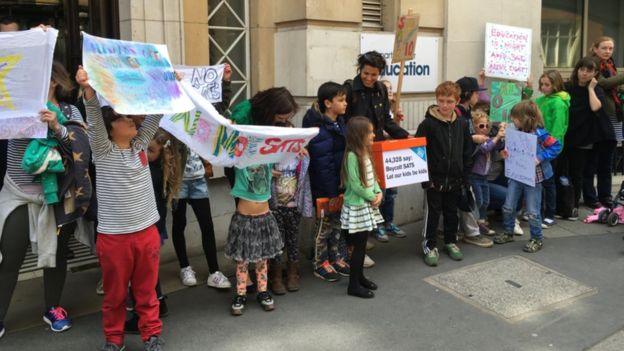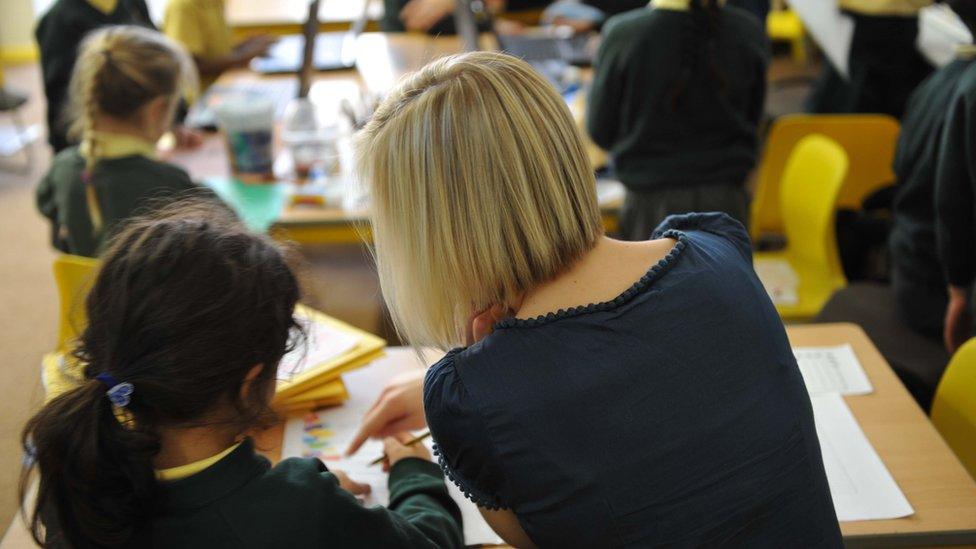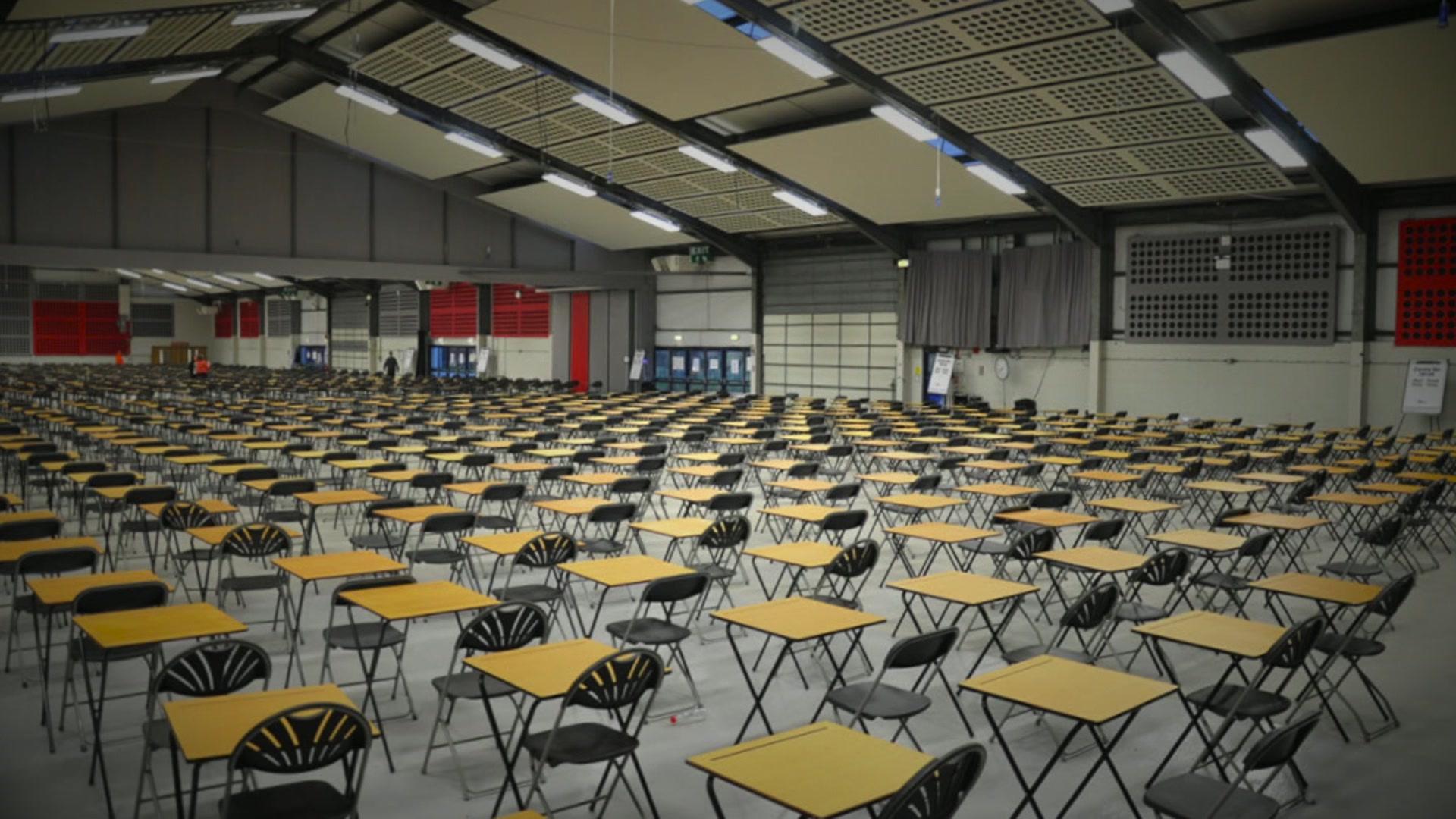Teachers back possible primary test boycott
- Published
- comments

Last year some parents removed their children from school on the day of the tests
Teachers have voted to explore the possibility of boycotting all national tests at primary level in England.
Delegates at the Association of Teachers and Lecturers conference backed a possible boycott by 96% to 4%.
The motion urges discussions with other unions, "to see if they would join such a boycott" but this year's tests are unlikely to be affected.
Proposer Jean Roberts said government plans to scrap tests for seven-year-olds did not go far enough.
The government's consultation announcement last month followed years of pressure from teachers, parents and educationalists opposed to putting young pupils high stakes national Sats tests.
The Department for Education proposed a new assessment for pupils when they first start school instead.
The idea would be that children do not know they are being tested, according to the DfE.
Last year parents of seven-year-olds in the Let Our Kids be Kids campaign removed their children from school on the day of the tests.
Pupil stress
Ms Roberts, a delegate from the London borough of Brent, said the union should say no to the "baseline" testing of five-year-olds - as well as to the testing of 11-year-olds, which are the basis of primary school league tables.
"The time has passed for moaning about the tests. The time has come to put the nail in the coffin of testing. Our children deserve better," said Ms Roberts.
She argued that national tests in primary schools were leading to stress in children and a narrowing of the curriculum, while teachers are being judged on test results, "not on the quality of teaching".

Another speaker, Michael Catty, from Hertfordshire, said education in England was "in a pit", caught between testing and league tables, which left little room for education.
"We can't do anything about league tables but we can do something about testing.
"Nobody wants it, the children don't want it, the parents don't want it, the teachers don't want it. Let's get rid of it. We can do it," urged Mr Catty.
In her keynote speech to the conference, ATL General Secretary Dr Mary Bousted the union had "worked hard" with Department for Education over the past year and had "managed to secure some improvements" to primary testing.
"That said, we think the DfE could be far more ambitious with their plans for primary assessment and accountability," she added.
Dr Bousted later told journalists that she believed that Education Secretary Justine Greening was taking the issue seriously and that some of the government's proposals were "a serious attempt to engage with the profession".
However, the union would not agree to new tests for five-year-olds and the government was giving out mixed messages on testing, she said.
She said the chaos of last year's tests for 11-year-olds - when changes to content and marking systems meant almost half of children failed to meet the required standard - had left teachers with "huge scars".
"It's not surprising that teachers say 'we want the option if we don't get significant, serious progress, we want the option of a boycott.'"
The motion instructs the union's executive committee "to explore a possible boycott of all tests at primary level".
"Further, that discussions are held with both the NUT and NAHT to see if they would join such a boycott."
A formal boycott of the tests would be a form of industrial action and would therefore need to be put to a ballot of all the union's members - this means this year's tests are likely to go ahead as normal.
The ATL is due to amalgamate fully with the National Union of Teachers by 2019.
The NUT annual conference, in Cardiff over Easter, will also debate a motion on a primary test boycott.
A boycott of SATs tests in 2010 by the NUT and head teachers' union, NAHT, affected about a quarter of England's primaries, with tens of thousands of pupils missing the tests.
- Published30 March 2017

- Published30 March 2017
- Published17 March 2017
